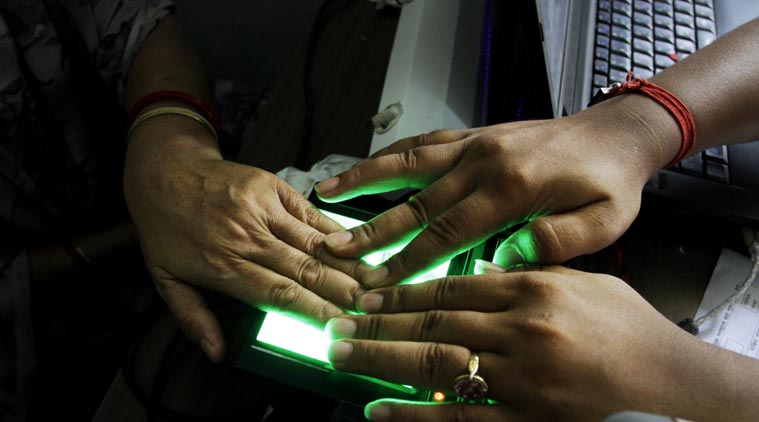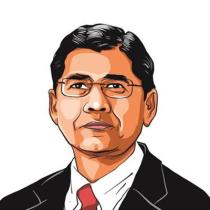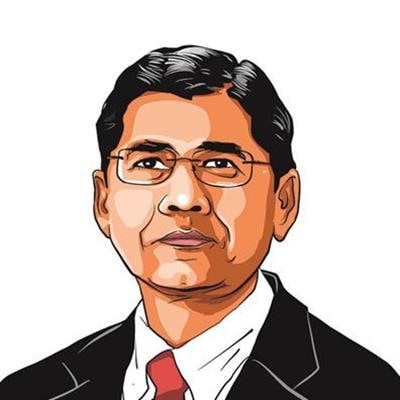Course correction
Apex court has upheld constitutionality of Aadhaar. But it has also struck down its ubiquitous deployment

In another shocking development, the Prevention of Money-Laundering Rules were amended to make it mandatory for linking every bank account with the Aadhaar number.
By a majority of 4:1, the Supreme Court (SC) has upheld the validity of the architecture of the Aadhaar ecosystem. At the same time, the majority has struck down the requirement of insisting on Aadhaar for several activities, which had nothing to do with obtaining subsidies, benefits or services. For example, it was made mandatory to link all mobile phones with the Aadhaar number but this has been held to be invalid and no telecom company can now insist on furnishing the Aadhaar number to either get a new SIM card or to continue the use of the existing mobile number.
In another shocking development, the Prevention of Money-Laundering Rules were amended to make it mandatory for linking every bank account with the Aadhaar number. Thus, more than a billion bank accounts were required to be linked and it was actually done in more than half the number of total bank accounts. This was an extremely disproportionate step that caused enormous hardship because several bank accounts were completely blocked where the Aadhaar number had not been linked. Individuals like pensioners, retired Army personnel, and teachers who had bank accounts for several decades were suddenly asked to link the Aadhaar number with the threat of the bank completely shutting down their accounts. Mercifully, the SC has struck down this absurd requirement. The linking of Aadhaar with PAN card has been upheld although the reasons for so doing require examination.
Section 7 of the Aadhaar Act made it mandatory to furnish the Aadhaar number to enable Indian residents to get subsidies, benefits or services that are funded out of the Consolidated Fund of India. Only 52 per cent of Indians enjoy such subsidies but, by a series of notifications and executive orders, the Aadhaar Act became mandatory for almost every human activity. A birth certificate would not be granted without the Aadhaar number nor could a dead relative be cremated without this number. No child could be admitted to a nursery school, a student could not write his +2 examination or a medical entrance test without this number. The net result was that from birth to death and from dawn to midnight, every human activity required production of the other card. Indeed, one could not even get a ticket to pray at the Tirupati temple without this number.
An unfortunate and regrettable facet of this case is that the SC, in a series of orders, had directed that the Aadhaar number should not be made mandatory except for six essential services and the attorney general had assured the Court that Aadhaar would be voluntary and nobody would be compelled to take this number. Despite this assurance and the directions of the SC, the Aadhaar number was made mandatory for all activities and this was clearly in violation of the orders of the Court. However, the majority has held that this would not be treated as a contempt and it would be necessary to read the judgment in detail to ascertain how the directions of the SC could be flouted with absolute impunity.
The majority decision has also made it clear that the creation of metadata and its analysis would not be permitted. Authenticated data cannot now be stored for more than six months and several directions have been issued to enhance data protection. Another major relief is that the Aadhaar number cannot be used by private corporations and the state cannot enter into any contract with such companies for the sharing of data.
Subsidies, benefits and services were being given to various sections of society on the basis of different identification. Thus, the Public Distribution System (PDS) was operated on the ration card system, pensions were given on the basis of family pension cards and so on. After the Aadhaar card was issued, the benefit would not be given except on production of the Aadhaar card. In other words, the Aadhaar number effectively invalidated all other forms of identity. The SC has now pointed out that important benefits cannot be denied merely because the Aadhaar number is not available or the fingerprints of an individual do not match. He should have the option of producing alternative methods of identity, and get the benefits he is statutorily entitled to.
A major ground of challenge was that the Aadhaar Act was wrongly passed as a Money Bill. Under the Constitution, a Money Bill must have only matters relating to finance and taxation. The peculiar feature of a Money Bill is that it is passed only by the Lok Sabha and Rajya Sabha can only make recommendations which can be completely ignored by the lower house. The Aadhaar Act, according to the petitioners, was not a Money Bill and should have been introduced as an ordinary bill and properly passed in the Rajya Sabha as well. The dissenting decision of Justice D Y Chandrachud has elaborately discussed this point and held that the Aadhaar Act was not a Money Bill and that the law had to be struck down on that score alone. The majority, however, has held the Aadhaar Act to be a Money Bill although the reasons for so holding are not clear and one would have read the detailed judgement to understand how a law which had almost nothing to do with either finance or taxation could be passed as a Money Bill.
In the end, the judgement comes as a major relief for millions of Indians and the insistence of this number for all daily activities now comes to an end. It remains to be seen as to how the government implements various directions and suggestions made by the Supreme Court, particularly in the context of data protection, surveillance and respecting the privacy of an individual.
The writer is a senior advocate, Supreme Court and had appeared for some of the petitioners in the Aadhaar case
For all the latest Opinion News, download Indian Express App
More From ARVIND P. DATAR
- A defence without aadhaarR S Sharma misses the point: All critics ask is to not make the number compulsory..
- Harming the nationThe deliberate refusal to implement the decisions of the collegium is hurting the judiciary...
- The Indira we must not forgetOn her birth centenary, it is important to remember the dark period of constitutional history she presided over...








































No hay comentarios:
Publicar un comentario